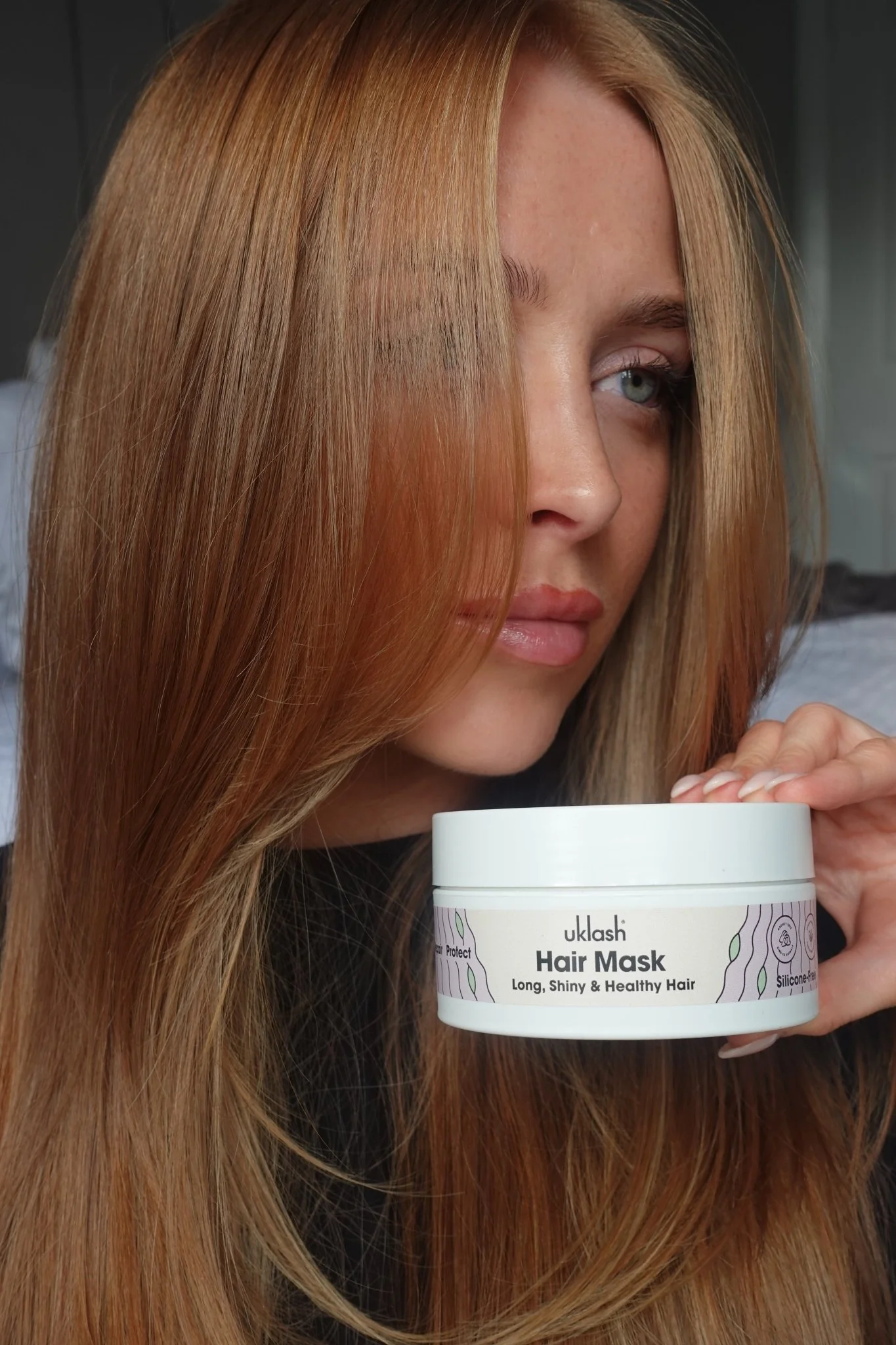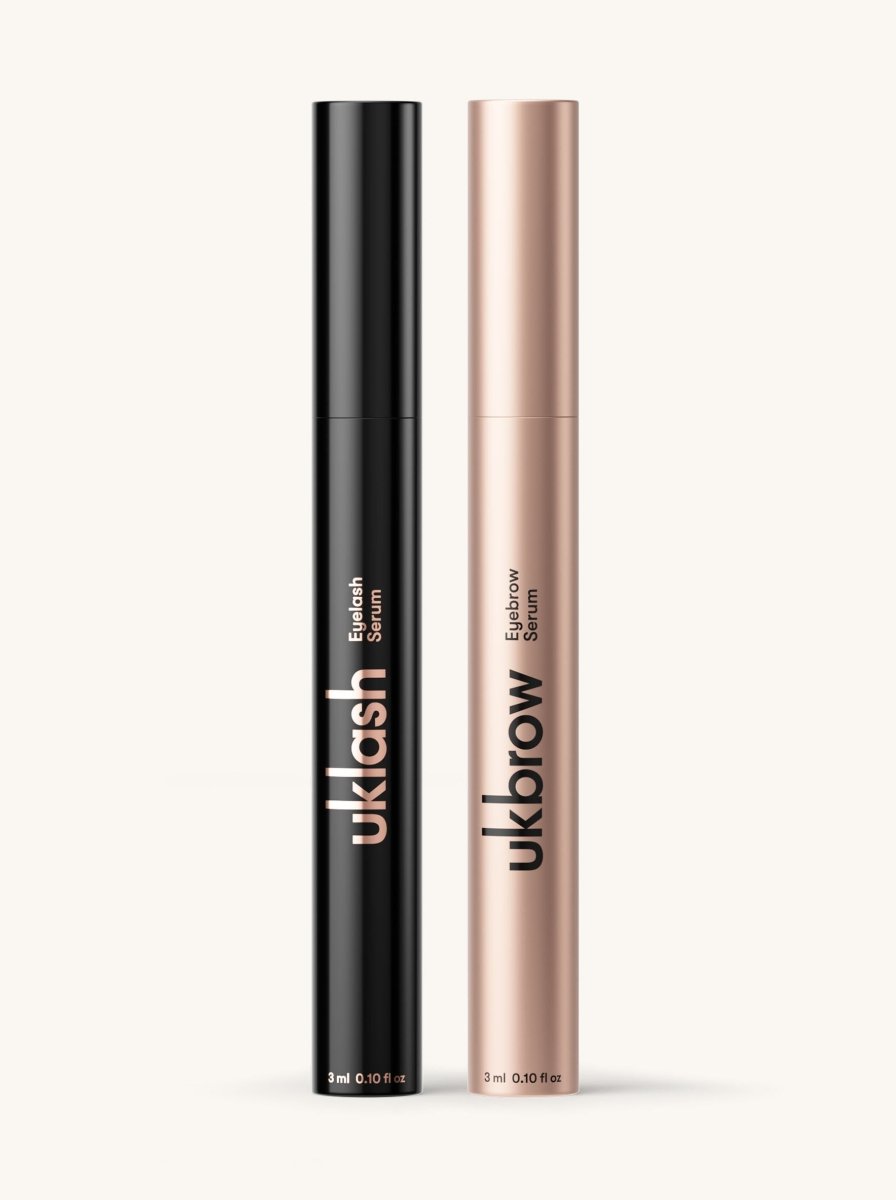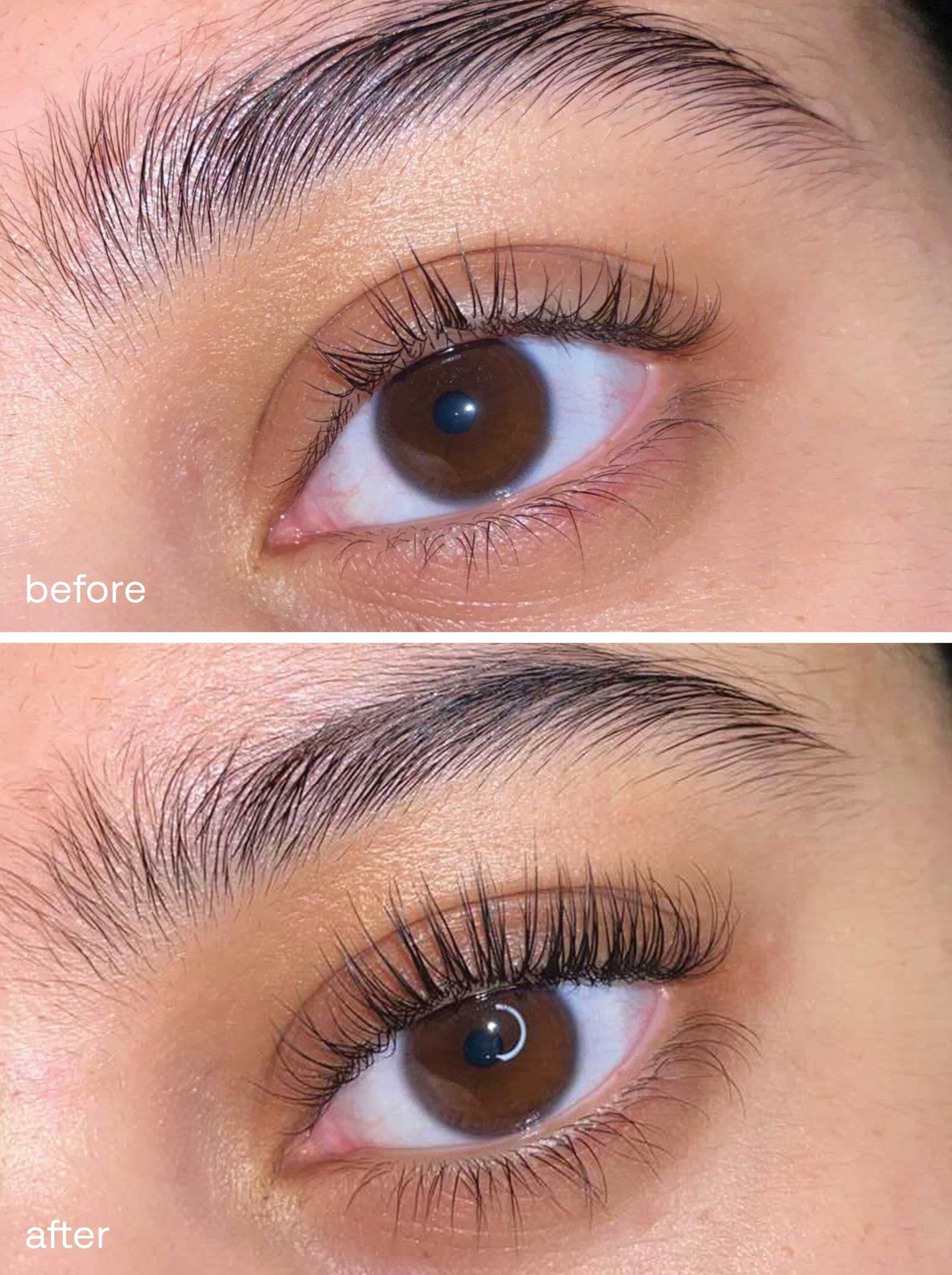
How To Regrow Thinning Hair For Women
Wondering how to regrow thinning hair for women? Dealing with thinning hair can be a challenging journey for women, impacting not just their appearance but also their confidence. Various factors such as hormonal changes, genetics, stress, and lifestyle choices contribute to this common issue among females. However, amidst these concerns, there's hope.
In this guide on how to regrow thinning hair for women, we'll delve into effective solutions and steps to address this concern, focusing on proven methods and solutions. One such solution gaining attention is UKLASH, which promises to aid in hair regrowth and revitalization. Join us as we navigate through the nuances of combatting hair thinning, aiming to restore not just your strands but also your self-assurance
How To Regrow Thinning Hair
Change Your Diet
The connection between nutrition and hair health is profound, and altering your diet can significantly impact hair regrowth. To combat thinning hair, focus on a balanced intake of essential nutrients vital for healthy strands. Incorporate foods rich in biotin, such as eggs, nuts, and whole grains, known to stimulate hair growth for thicker hair.
Omega-3 fatty acids found in fish, flaxseeds, and walnuts contribute to scalp health and shine. Amp up iron intake from spinach, lentils, and lean meats to prevent hair loss. Ensure a diverse diet with plenty of fruits, vegetables, and proteins to provide the necessary vitamins and minerals.
Maintaining hydration levels is equally crucial, so drink ample water throughout the day for overall hair vitality. Making these dietary adjustments can foster an environment conducive to hair rejuvenation and regrowth.
Take Supplements
Supplements play a pivotal role in nourishing hair follicles and supporting hair regrowth. Consider incorporating:
- Biotin: Known for strengthening hair structure and stimulating growth.
- B-complex Vitamins (B12, B6): Enhance oxygen and nutrient flow to the scalp, promoting hair health.
- Omega-3 Fatty Acids: Bolster hair follicles and improve overall hair texture.
- Zinc and Vitamin D: Contribute to maintaining a healthy scalp environment, fostering optimal conditions for hair growth.
One notable supplement gaining attention for its potential in promoting hair growth is UKLASH Hair Gummies.
Formulated with a blend of biotin, folic acid, and essential vitamins, these gummies target the root cause of hair thinning. Specifically designed to fortify hair follicles and nourish the scalp, UKLASH Hair Gummies aim to revitalize hair from within, supporting not just growth but also strength and shine.
The carefully curated blend of nutrients in these gummies aims to address the nutritional gaps that may impede hair regrowth, providing a convenient and effective solution for those seeking to combat thinning hair.
Reduce Stress
Stress and hair loss often go hand in hand, disrupting the hair growth cycle and leading to thinning strands in women. To counter this, prioritize stress reduction techniques like meditation, deep breathing, or yoga to promote relaxation.
Regular exercise, adequate sleep, and a balanced lifestyle also play vital roles in managing stress. Establishing boundaries, pursuing hobbies, and seeking support can significantly alleviate stress levels. By managing stress effectively, you create a more favorable environment for curbing hair loss and fostering regrowth.
Be Gentle With Your Hair
Handle your hair delicately to prevent damage, especially if it's thinning. Use a soft-bristle brush and a wide-tooth comb to avoid breakage, especially when hair is wet. Minimize heat styling and opt for sulfate-free, nourishing shampoos & conditioners designed for thinning hair.
Choose lightweight styling products to add volume without weighing hair down. By treating your hair gently and using appropriate products, you can protect and support healthier growth.
Avoid Bleaching or Colouring
Harsh chemicals in bleaching or coloring treatments can severely damage already thinning hair, stripping it of essential moisture and weakening its structure. These processes may exacerbate hair loss and breakage, further thinning the strands. Opting for gentler alternatives like ammonia-free or vegetable-based dyes can reduce the risk of damage.
Consider low-maintenance options like highlights or semi-permanent dyes that involve less chemical exposure. Prioritize nourishing treatments and consult a professional stylist for safer coloring methods that minimize harm to fragile hair, preserving its strength and vitality.
Choose Heat-Free Hair Styles
Heat styling tools can contribute to thinning hair by causing damage and weakening strands over time. High temperatures can lead to breakage and dryness, exacerbating the fragility of already thin hair. Opt for heat-free styling alternatives like air-drying, braiding, or using soft rollers to achieve curls without heat.
Embrace natural textures and hairstyles that don't require heat, like buns or loose braids, to minimize stress on delicate hair. Prioritize nourishing treatments and use protective products when heat styling is necessary to mitigate potential damage and support healthier hair growth.
How To Hide Thinning Hair
Each method offers its unique advantages for concealing thinning hair. Experimenting with different options or combining techniques can help achieve the desired coverage and confidence while managing hair thinning concerns.
- Layered cuts: Add volume and texture.
- Volumizing shampoos/conditioners: Boost hair volume.
- Scarves or headbands: Cover thinning areas stylishly. Hats or beanies: Provide coverage and fashion.
- Root touch-up powders or sprays: Conceal visible scalp.
- Hair Extensions/Wigs Add volume and length.
- Scalp micropigmentation: Mimic hair follicles for a fuller look.
Different types of hair loss
Hair loss in women can stem from various causes and present in different forms:
Recognizing the specific type of hair loss is crucial for seeking appropriate treatment or management, making it essential to consult with a healthcare professional for accurate diagnosis and tailored solutions.
Hair Loss Treatments
Hair loss treatments can be divided into medical and non-medical approaches.
Medical Treatments:
Medical treatments include options like Minoxidil (Rogaine), a topical solution applied to stimulate hair growth. Finasteride (Propecia), an oral medication mainly for men, targets a hormone linked to hair loss. Corticosteroid injections are used for conditions like alopecia areata, promoting hair regrowth but potentially causing scalp discomfort.
Non-Medical Treatments:
Non-medical treatments encompass alternatives such as laser therapy, which stimulates follicles with low-level lasers, but results can vary, and consistent sessions are necessary. Platelet-Rich Plasma (PRP) therapy involves using a patient's blood to promote hair growth, often requiring multiple sessions. Nutritional supplements like biotin and vitamins help hair growth but might have inconsistent efficacy and could be harmful in excessive doses.
When considering these treatments, it's essential to weigh their effectiveness, potential risks, and the commitment required. Medical treatments often need professional guidance and prescriptions, while non-medical options might necessitate regular sessions for visible results. Consulting with a healthcare provider or dermatologist helps in selecting the most suitable treatment based on individual hair loss characteristics and health considerations.
Ways to Cope Emotional Impact of Hair Loss
Acknowledge Emotions: Understand that it's normal to feel upset, anxious, or self-conscious about hair loss. Acknowledging these emotions is the first step towards managing them.
Seek Support: Talk to friends, family, or a therapist about your feelings. Support groups or online communities can provide a sense of belonging and understanding.
Self-Care: Prioritize self-care practices like exercise, meditation, or hobbies that bring joy. Taking care of your overall well-being can boost confidence.
Explore Styling Options: Experiment with different hairstyles, scarves, hats, or wigs to find what makes you comfortable and confident.
Professional Help: Consult a dermatologist or a healthcare professional for guidance on treatment options and emotional support.
Online Resources: Look for online forums, websites, or social media communities dedicated to hair loss where you can find information, support, and stories from others going through similar experiences.
Remember, managing the emotional impact of hair loss is a personal journey. Be patient and kind to yourself throughout this process, and don't hesitate to seek help or support when needed.
How to regrow thinning hair? Introducing UKLASH
Here at UKLASH, we are dedicated to delivering safe and effective products for lash, brow, and hair care, prioritizing the well-being and satisfaction of our customers.
People around the globe love our hair growth support products. We have +65,000 testimonials for our lash serums, brow serums and hair growth serums and how they have encouraged lash, eyebrow and hair growth. Not only restoring your healthy locks but, more importantly, your confidence too.
Refresh your hair with the best in hair supplements from UKLASH.




















